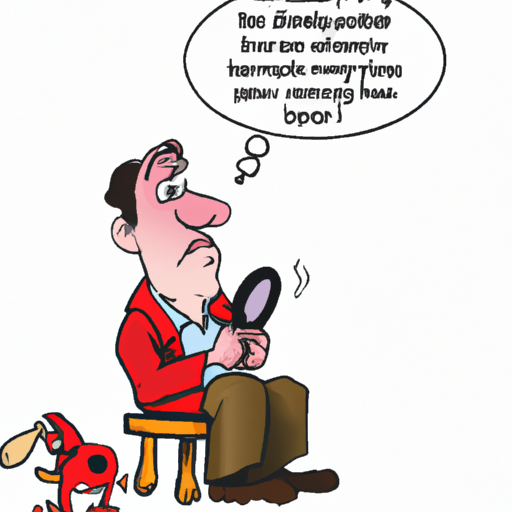As a pet owner, it’s natural to be concerned when you spot something unusual in your dog’s stool, especially blood. Blood in your dog’s poop could indicate a variety of health issues, some more serious than others. Understanding what it means, its causes, and how to respond could make a world of difference for your furry friend’s health and wellbeing.
Table of Contents
- Understanding the Significance of Blood in Dog Poop
- Possible Causes of Blood in Dog Poop
- When to Visit a Vet
- Treatment and Prevention
- Frequently Asked Questions
Key Takeaways
- Blood in a dog’s poop can signify multiple health issues, ranging from minor to serious.
- Red blood typically indicates problems in the lower digestive tract, while darker blood points to the upper digestive tract.
- Immediate veterinary attention is necessary if the dog exhibits other worrying symptoms.
- Treatment varies depending on the underlying cause and may involve dietary changes, medication, or surgery.
- Regular check-ups, a balanced diet, and keeping your dog’s environment clean can help prevent many causes of blood in dog poop.
Understanding the Significance of Blood in Dog Poop
Finding blood in your dog’s poop can be alarming. However, it’s important not to panic. The blood’s color can provide clues about the possible causes. Bright red blood, or hematochezia, usually suggests an issue in the lower digestive tract, such as the colon or rectum. On the other hand, dark, tarry stools (melena) might indicate a problem in the upper digestive system, such as the stomach or small intestines.
Possible Causes of Blood in Dog Poop
There are numerous reasons why your dog might have blood in its stool. Here are some of the most common ones:
- Gastrointestinal ulcers: These can lead to melena. Ulcers can be caused by certain medications, toxins, or diseases like kidney disease. Here is an informative article on gastrointestinal ulcers in dogs.
- Parvovirus: A highly contagious and potentially deadly virus, especially for puppies. It often causes bloody diarrhea.
- Parasites: Worms or protozoans like Giardia can cause blood in the stool. Regular deworming can help prevent this.
- Dietary issues: A sudden change in diet, food allergies, or eating something harmful can lead to blood in poop.
- Anal sac disorders: Inflamed or infected anal glands can cause bloody stools.
- Trauma: An injury to the lower digestive tract can result in blood in the stool.
- Cancer: Certain types of cancer, such as colorectal cancer, can cause bloody stools.
When to Visit a Vet
If you notice blood in your dog’s poop, it’s generally a good idea to consult a veterinarian. This is particularly urgent if your dog also exhibits other symptoms like vomiting, loss of appetite, lethargy, or if the dog is in pain.
Furthermore, if you are noticing a persistent presence of blood in your dog’s stool, it’s vital to seek professional help. This article provides insights on when to seek veterinary care.
Treatment and Prevention
Treatment for blood in dog poop depends on the underlying cause. This could range from medication for infections or parasites, dietary changes for food-related issues, to surgery for serious conditions like cancer or severe trauma.
Prevention strategies include regular check-ups, a balanced diet, and keeping your dog’s environment clean. You can consider dog-safe plants for your garden to avoid accidental ingestion of harmful plants. Also, ensure that your dog is regularly vaccinated and dewormed to prevent diseases and parasitic infections. Lastly, keeping harmful substances out of your dog’s reach can prevent accidental ingestion of toxins. Dog-proofing your home can go a long way in ensuring your dog’s safety.
Frequently Asked Questions
1. Can blood in dog poop be due to stress?
Yes, stress can cause colitis (inflammation of the colon), leading to bloody stools.
2. Is blood in dog poop always a sign of a serious health issue?
Not necessarily. While it can indicate serious issues like cancer or parvovirus, it can also be due to minor problems like dietary changes or anal sac disorders. However, any blood in your dog’s poop warrants a vet visit.
3. Can I treat my dog at home if they have bloody stools?
It’s not advisable to treat your dog at home without consulting a vet. While you might think it’s a minor issue, only a vet can accurately diagnose the problem.
In conclusion, blood in your dog’s poop is a symptom that should never be ignored. While it might not always indicate a serious problem, it’s essential to get your dog checked by a vet to rule out severe health issues. Regular check-ups, a balanced diet, and a safe environment for your dog can help keep them healthy and happy. Don’t forget to check out this article on keeping your dog healthy for more tips.



